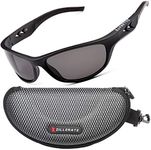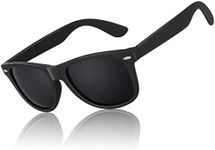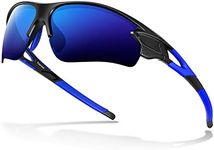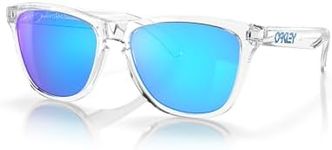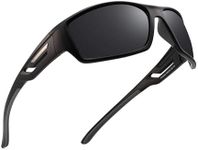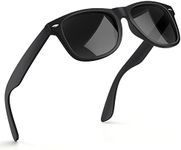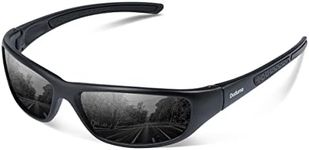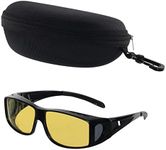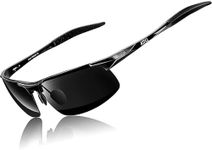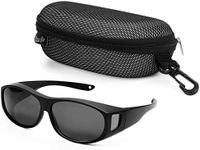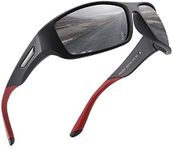Buying Guide for the Best Fishing Sunglasses
When choosing fishing sunglasses, it's important to consider how they will enhance your fishing experience by protecting your eyes and improving your ability to see underwater. The right pair of sunglasses can reduce glare, provide UV protection, and improve visibility, which are all crucial for a successful day on the water. Understanding the key specifications will help you select the best sunglasses for your needs, ensuring comfort and functionality.PolarizationPolarization is a special coating on the lenses that reduces glare from reflective surfaces like water. This is important for fishing because it allows you to see beneath the water's surface more clearly, helping you spot fish and underwater structures. Polarized lenses are essential for any angler, as they enhance visibility and reduce eye strain. When choosing sunglasses, ensure they are polarized to maximize your fishing experience.
UV ProtectionUV protection refers to the sunglasses' ability to block harmful ultraviolet rays from the sun. This is crucial for protecting your eyes from long-term damage, such as cataracts or macular degeneration. Look for sunglasses that offer 100% UV protection or UV400, which blocks both UVA and UVB rays. This is a non-negotiable feature for anyone spending extended periods outdoors, especially on the water.
Lens ColorLens color affects how much light reaches your eyes and can enhance contrast and visibility in different environments. For fishing, common lens colors include gray, brown, and amber. Gray lenses are great for bright, sunny days as they reduce overall brightness without distorting colors. Brown and amber lenses enhance contrast and depth perception, making them ideal for variable light conditions or overcast days. Choose a lens color based on the typical weather and water conditions you fish in.
Frame MaterialThe frame material of sunglasses affects their durability, weight, and comfort. Common materials include plastic, nylon, and metal. Plastic frames are lightweight and affordable but may not be as durable. Nylon frames are more durable and flexible, making them a good choice for active use. Metal frames are sturdy but can be heavier and may corrode in saltwater environments. Consider your fishing environment and personal comfort when selecting a frame material.
Fit and ComfortFit and comfort are crucial for ensuring that your sunglasses stay in place and feel good during long fishing trips. Look for sunglasses with adjustable nose pads and temple tips for a customizable fit. Wraparound styles can provide better coverage and stay secure during active movements. Try on different styles to find a pair that fits well without pinching or slipping, as comfort is key to wearing them all day.
